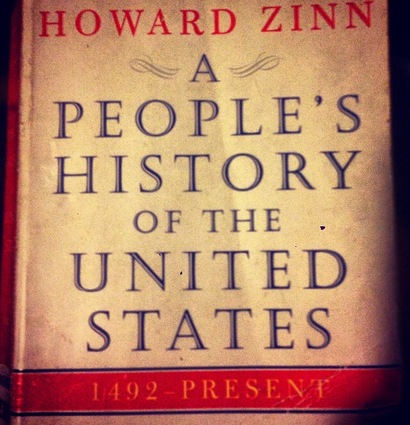So begins one of the most important books in United States history. The great American historian, Howard Zinn, goes on to present to his readers a slightly illogical excerpt from Christopher Columbus's travelogue.
They ... brought us parrots and balls of cotton and spears and many other things... They willingly traded everything they owned... They were well-built, with good bodies and handsome features.... They do not bear arms, and do not know them, for I showed them a sword, they took it by the edge and cut themselves out of ignorance. They have no iron. Their spears are made of cane.... They would make fine servants.... With fifty men we could subjugate them all and make them do whatever we want.
Because after all, what exactly is the United States celebrating? Christopher Columbus never even set foot on American soil. Surely we can't be celebrating his discovery of American land. He clearly wasn't a model of a man, unless genocide and enslavement are supposed to be the national paragon. (Although, looking back, genocide and enslavement were kind of like the midwives of the modern United States.) Perhaps we're supposed to be celebrating Columbus's imperialistic spirit. Ah, there we go. That makes much more sense. Imperialism and hegemony are a call for celebration. Without those two national virtues, as Howard Zinn's historic treasure tome elegantly suggests, the United States would have forever remained just a twinkle in the founding fathers' eyes. Howard Zinn sagaciously expresses:
My point is not that we must, in telling history, accuse, judge, condemn Columbus in absentia. It is too late for that; it would be a useless scholarly excercise in morality. But the easy acceptance of atrocities as a deplorable but necessay price to pay for progress (Hiroshima and Vietnam, to save Western civilization; Kronstadt and Hungary, to save socialism; nuclear proliferation, to save us all)--that is still with us. One reason these atrocities are still with us is that we have learned to bury them in a mass of other facts, as radioactive wastes are buried in containers in the earth.

 RSS Feed
RSS Feed
